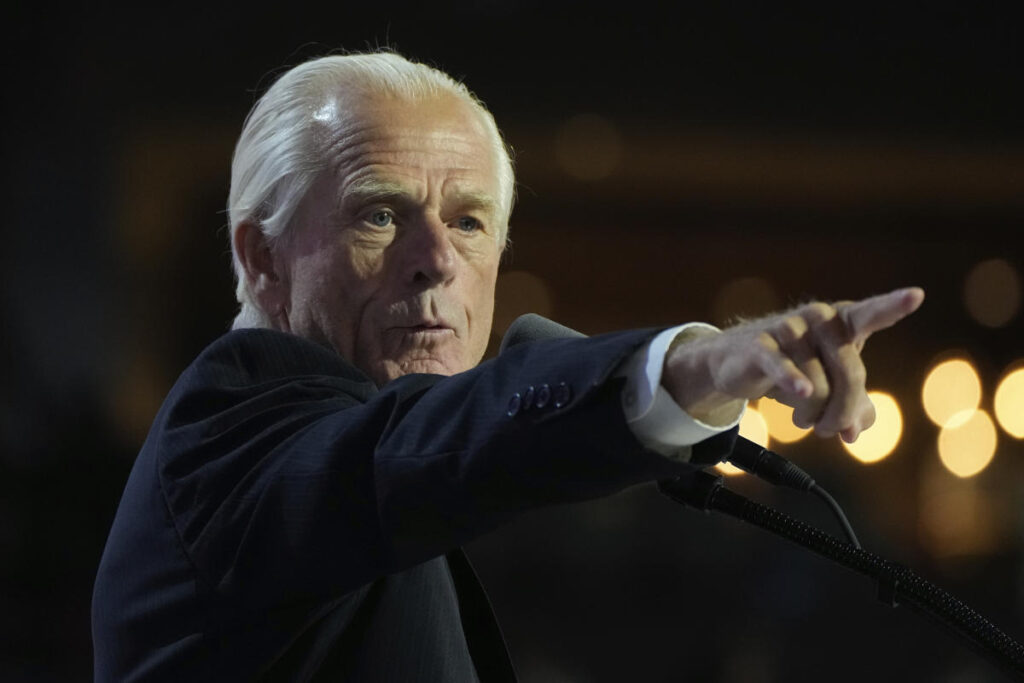The Supreme Court recently rejected an appeal from Peter Navarro, a former White House official under President Donald Trump, related to his contempt of Congress charges. This decision comes as Navarro prepares to return to a significant role in Trump’s anticipated second term after serving a brief prison sentence for refusing to comply with a congressional investigation into the January 6, 2021, Capitol riot. The court’s dismissal of the appeal was largely non-specific, adhering to the norm of not providing explanations for such decisions. This outcome signifies a tough stance from the judiciary regarding cases that intertwine with congressional authority and compliance.
Navarro’s legal troubles extend further than his contempt conviction. The Justice Department has initiated a lawsuit against him for allegedly retaining presidential records on a personal email account during his time in the White House. Prosecutors argue that these records should be handed over to the National Archives, a directive supported by lower courts. However, Navarro contends that the Presidential Records Act does not grant the federal government the power to search private email accounts for presidential materials. This legal battle raises important questions about the balance of power between branches of government and the nuances of record-keeping laws.
Since leaving the White House, Navarro has remained a vocal figure, particularly concerning trade relationships with China. His controversial views and actions have positioned him as a central character in discussions surrounding U.S. trade policy. With the announcement that he will serve as a senior counselor for trade and manufacturing in Trump’s forthcoming administration, his influence in shaping future policies is anticipated to be substantial. This role underscores Navarro’s strong alignment with Trump’s trade decisions and his dedication to modifying U.S. international trade agreements, particularly those deemed unfavorable.
Navarro is not the only former Trump aide facing legal repercussions. Steve Bannon, another high-profile advisor, also served time for contempt of Congress. Bannon’s conviction mirrors the challenges faced by figures connected to the Trump administration concerning congressional inquiries. The prosecutions of both Navarro and Bannon highlight a broader trend of accountability efforts against individuals who have resisted legislative oversight. This trend has raised concerns about the implications for executive branch cooperation with Congress in terms of transparency and governance.
Despite serving his sentence, Navarro continues to contest his conviction related to the January 6 investigation. He maintains that he was unable to cooperate due to President Trump’s invocation of executive privilege, a claim that has drawn scrutiny and legal debate. This ongoing appeal indicates Navarro’s intentions to clear his name and potentially influence future legal interpretations regarding executive privilege and congressional authority. The outcome of these legal battles is likely to set meaningful precedents regarding the boundaries of executive power and legislative inquiry.
As the narrative unfolds, Navarro’s situation reflects broader themes of governance, the struggle for congressional oversight, and the implications of executive privilege. With the upcoming changes in the administration and Navarro’s expected return to a prominent role, it remains to be seen how his legal challenges will shape his influence and the policies he advocates. The interplay between his legal battles and political ambitions encapsulates larger questions about accountability, the rule of law, and the responsibilities of government officials. Thus, it positions Navarro at a nexus of controversy that will continue to engage public and legal discourse in the coming months.

